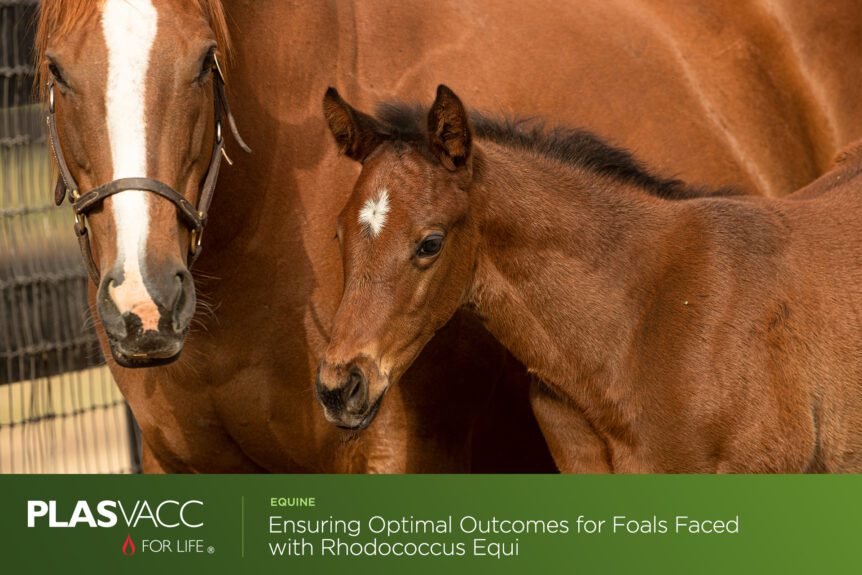What is Rhodococcus equi?
A bacterium found in soil worldwide, Rhodococcus equi (R. equi) is a common cause of bronchopneumonia in foals between 3 weeks and 5 months of age.
While the survival rate of R equi pneumonia is upwards of 70% with appropriate therapy, the case fatality rate without therapy is a staggering 80%.
A leading cause of premature death in foals, R. equi infection, or “Rattles” as it’s commonly known, progresses slowly, with foals often not showing clinical signs until the disease has become severe and the mortality risks become greater. At this stage even successful outcomes can lead to life-long complications.
As outlined by the UC Davis School of Veterinary Medicine, the first clinical signs may only present as a slightly increased respiratory rate and mild fever. These easy-to-miss indications are often missed entirely or ignored, allowing the condition to progress undiagnosed until further clinical signs present, including:
- Decreased appetite
- Lethargy
- Fever
- Tachypnea
- Increased effort of breathing characterized by nostril-flaring and increased abdominal effort
The Equiplas R Advantage
With just one unit administered right after birth and followed up with another unit one month later, hyperimmune plasma such as Equiplas R has been proven to be a very effective aid in the prevention of Rhodococcus equi in foals. Download study.
Still offering all of the same benefits afforded by Equiplas, Equiplas R also confers protection against R. equi bacteria thanks to donor animals who have been hyperimmunized with the most effective R. equi vaccine available. Accordingly, Equiplas R equine plasma is extremely rich in specific antibodies to Virulence associated protein A (VapA) known to be the major virulence factor of Rhodococcus equi.
While it’s easy to see preventative care as simply another added expense to the already expensive foaling process, Equiplas R is instead an investment in the long-term health and longevity of animals in your care. As veterinarians know, preventing an illness or infection is both safer and less expensive, than to treat it after it has already compromised a patient’s health.
With Equiplas R, not only do you protect your foals against the risks from Failure of Passive Transfer (FPT) or Partial Failure of Passive Transfer (PFPT), but you also greatly reduce the risk of later infection from Rhodococcus equi.
For more information on preventing R. equi infection in your foals, be sure to check out the Equiplas-R product page.

